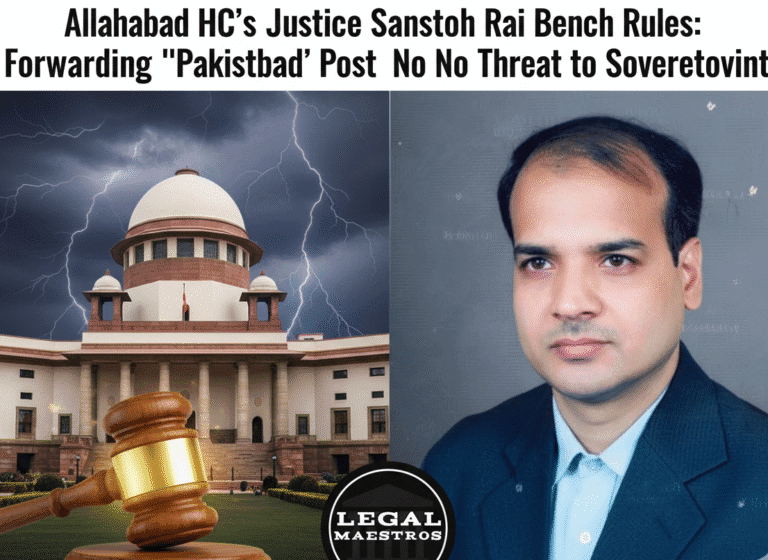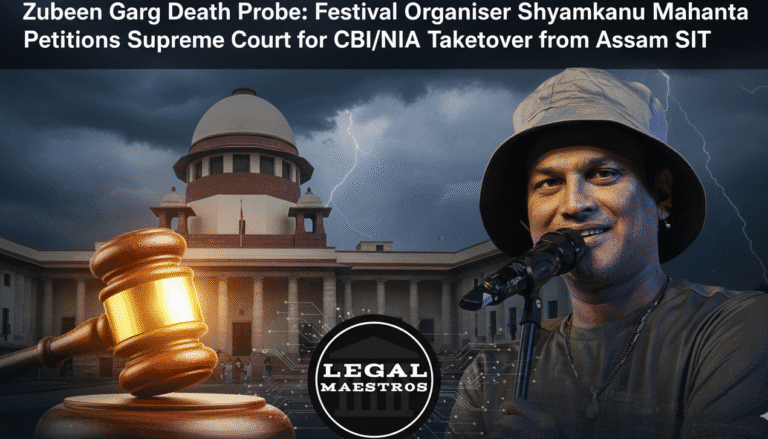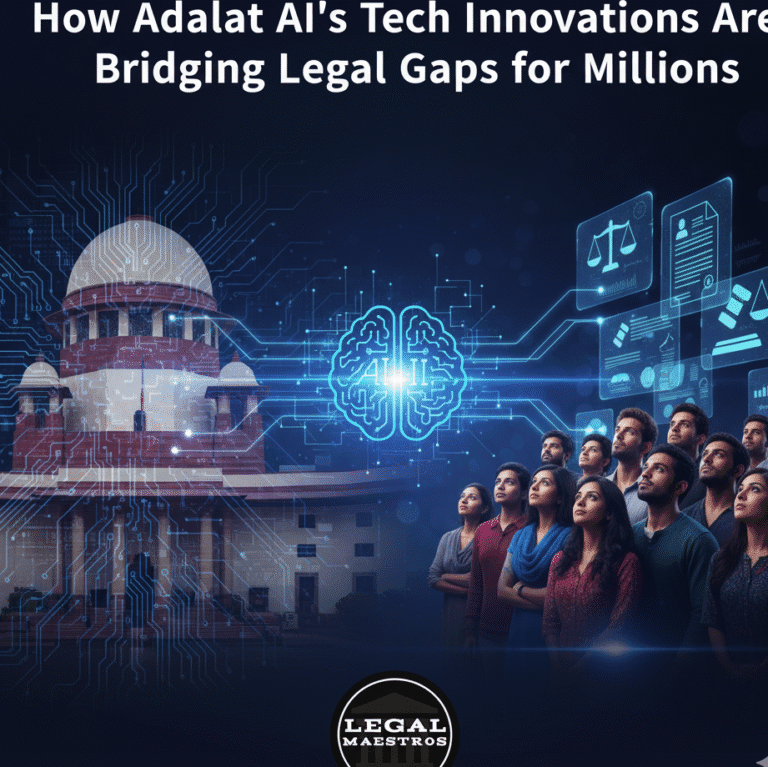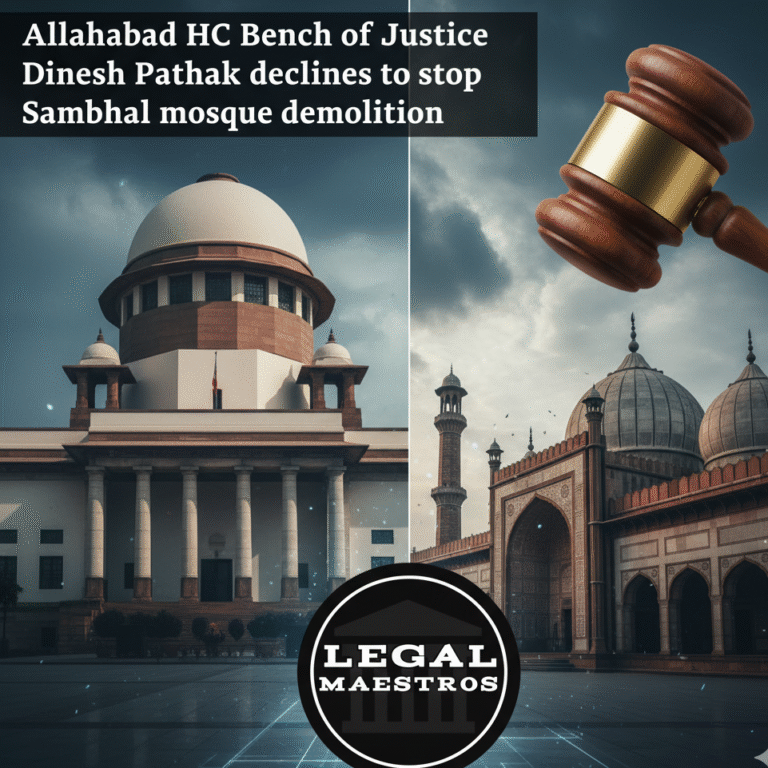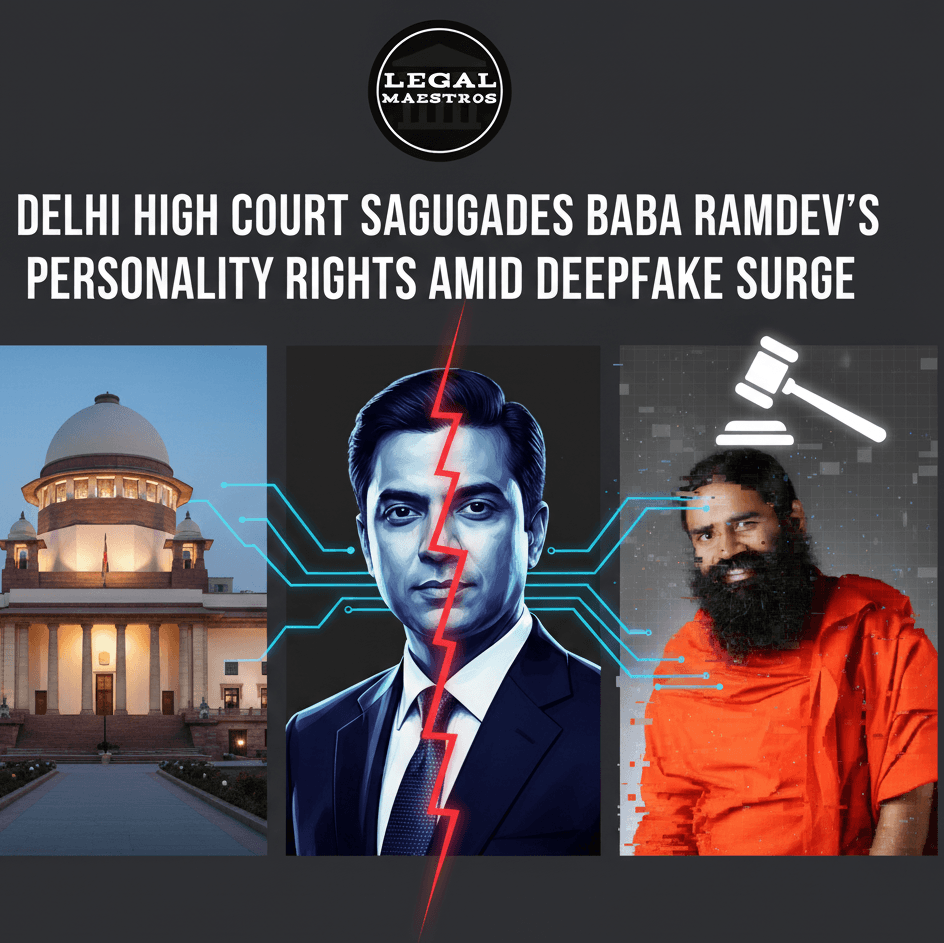
Delhi High Court Safeguards Baba Ramdev's Personality Rights Amid Deepfake Surge
What Are Personality Rights?
Personality rights are the rights of an individual to regulate the commercial exploitation of his or her identity, such as name, image, likeness and similar distinctive features. This is an important legal principle that applies to figures of the general public such as Baba Ramdev, whose image is of great commercial potential and trust. Such rights are used to guarantee an individual the ability to choose how they would wish to introduce themselves to the society and to avoid being used by individuals without their consent to achieve economic gains.
The right is basically a combination of two different rights; that of publicity and the right to privacy. The right of publicity provides an individual to enjoy their fame to make a profit by means of regulating the usage of the identity in endorsements and advertisements. Instead, the right to privacy safeguards them against the use of their likeness in a manner that is obtrusive, embarrassing or creates a misconception of them in the eyes of the community.
To someone like Baba Ramdev who has employed his name to create an enormous brand in the form of Patanjali Ayurved, guarding these rights is not only a matter of privacy but also of his entire business and reputation that he has earned among millions of his followers and consumers. False advertisements that use his name are not only damaging to his image, but are also deceiving people and diluting his brand.
For any queries or to publish an article or post or advertisement on our platform, do call at +91 6377460764 or email us at contact@legalmaestros.com.
The fact that the court ruled to defend these rights recognizes that the identity of an individual is his or her property. It cannot be handled as a social commodity to be abused by anyone particularly in commerce. This decision supports the notion that the goodwill and reputation of a public figure are property that they have labored to develop and which should be emphasized that it should be safeguarded by the law, which should not be used without permission.
The Deepfake Threat: A Digital Menace.
The most crucial trigger of this court case was the terrifying proliferation of deepfakes and fake media. Deepfake technology involves the use of Artificial Intelligence to produce very realistic and completely fake videos or audio clips. In this case, AI was utilized to modify preexisting videos of Baba Ramdev so that it seemed like he was promoting a product or uttering the claims that he never said.
They were not just rough cuts, but highly-technical manipulations that were meant to be believable. The fraudsters employed AI to recreate his voice and modify his lips in order to make the counterfeit support seem to have been by the genuine author to a naive observer. Such videos spread widely on the social media, such as Facebook, YouTube, and X (formerly Twitter), with the links frequently provided to buy unproven and possibly dangerous goods.
For any queries or to publish an article or post or advertisement on our platform, do call at +91 6377460764 or email us at contact@legalmaestros.com.
The threat of this kind of technology is massive. It might be employed to generate false news, disseminate political disinformation or commit financial fraud or, in this instance, institute complex scams that hinge on the belief of the populace on someone famous. To the victim the harm is multi faceted, as reputational damage occurs, lack of credibility and legal liability can come about once the people suspect that the victim is in fact connected to the scam.
The virality and speed of social media makes the issue even more problematic. One deep fake video can reach millions of individuals in a few hours, and it is practically impossible to keep the misinformation in the bottle after the release. It is this digital wildfire effect that is necessitating reactive legal interventions, including the injunction that was awarded in this case, to fight the menace.
The High Court’s Protective Shield
As a reaction to the petition submitted by Baba Ramdev, the Delhi High Court, under the jurisdiction of Justice Prathiba M. Singh, made a blanket injunction to stop the abuse of his personality rights. The social media sites were ordered to remove the infringement videos and posts in court. Importantly, it also instructed them to help stop the same content being uploaded again in the future, giving the platforms a level of responsibility to censor their materials.
For any queries or to publish an article or post or advertisement on our platform, do call at +91 6377460764 or email us at contact@legalmaestros.com.
The court also granted a John Doe order understanding that the attackers most of the times use anonymous accounts. It is a kind of an injunction that is directed against unknown defendants, which is necessary in the digital world where violators of the law can hide their actual identity without any problem. This gives the plaintiff the option of suing anybody who is caught to be contravening the order of the court, though he was not initially mentioned in the law suit.
Moreover, the court ordered the telecommunication service providers and the Ministry of Electronics and Information Technology to block the access to the URLs and accounts which were distributing the malicious content. The aim of this multi-pronged approach is to cleanse the internet of the current fake videos, as well as to make it difficult to spread them in the future. The decision in effect results in a shield of protection on the digital presence of Baba Ramdev.
The rationale developed by the court was based on the fact that the right to own identity and reputation is a core element of right to life and liberty. Justice Singh had commented that using the name of a well-known person to market untested medical procedures might be disastrous to the overall health of people. The ruling was thus not only on the need to protect an individual but as well as the need to protect the people against vulnerable misinformation.
For any queries or to publish an article or post or advertisement on our platform, do call at +91 6377460764 or email us at contact@legalmaestros.com.
Broader Implications for Public Figures
The decision of the Delhi high court in the case of Baba Ramdev is a historic case that has far encroaching consequences to all the public personages in India. It is a strong example of how the Indian legal system may be applied to combat the ever-growing challenge of the AI-driven deepfakes and digital impersonation. The ruling is an indication that the courts are ready to extrapolate the traditional legal concepts to meet the current technological issues.
This order allows other celebrities, politicians and individuals in the society to take decisive legal action to safeguard their own personality rights. It offers a clear legal route of seeking redress over unauthorized and malicious utilisation of their likeness on the internet. The case can possibly persuade social media companies to invest further in content moderation technology and to respond more quickly when such matters are reported to them.
For any queries or to publish an article or post or advertisement on our platform, do call at +91 6377460764 or email us at contact@legalmaestros.com.


